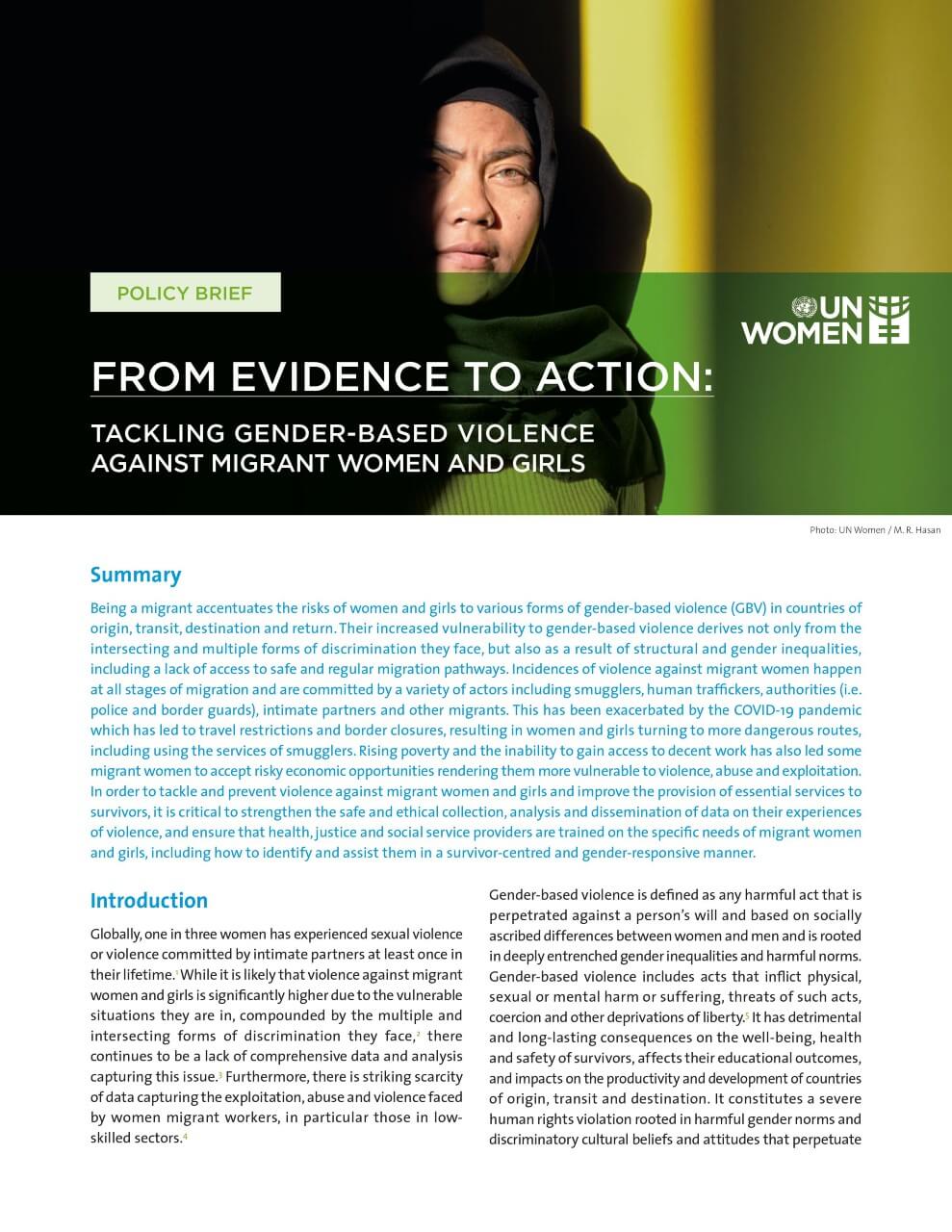From evidence to action: Tackling gender-based violence against migrant women and girls
Being a migrant accentuates the risks of women and girls to various forms of gender-based violence (GBV) in countries of origin, transit, destination, and return. Their increased vulnerability to GBV derives not only from the intersecting and multiple forms of discrimination they face, but also as a result of structural and gender inequalities, including a lack of access to safe and regular migration pathways.
Incidences of violence against migrant women happen at all stages of migration and are committed by a variety of actors including smugglers, human traffickers, authorities (i.e. police and border guards), intimate partners, and other migrants. This has been exacerbated by the COVID-19 pandemic which has led to travel restrictions and border closures, resulting in women and girls turning to more dangerous routes, including using the services of smugglers. Rising poverty and the inability to gain access to decent work has also led some migrant women to accept risky economic opportunities rendering them more vulnerable to violence, abuse, and exploitation.
In order to tackle and prevent violence against migrant women and girls and improve the provision of essential services to survivors, it is critical to strengthen the safe and ethical collection, analysis, and dissemination of data on their experiences of violence and ensure that health, justice, and social service providers are trained on the specific needs of migrant women and girls, including how to identify and assist them in a survivor-centred and gender-responsive manner.










